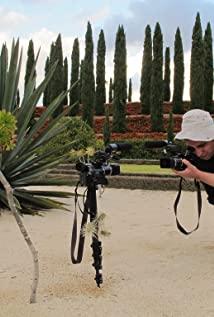In a lengthy autobiography, the "criminal" mentions his love of cinema and art, and then explains why he's impersonating director Mark Mabav: to gain respect, kindness, and even power.
"Understanding social suffering, capturing its ills, dealing with social class problems... A director should be humble and close to the people..." He doesn't know what a close-up or wide-angle shot is, but he is very familiar with the habits, behaviors, thoughts, and even the The responsibilities and obligations he undertakes, or to be precise, are what he thinks an Iranian director should look like, such as how to avoid fans, whether to choose films and uncut versions when watching films, etc.
At the same time, he knew better than anyone that he was poor. It seems that film and art, as symbols and symbols, can help him opportunistically escape material poverty through such "spiritual abundance". So, he played someone else, wisely misappropriated information, and sat back and enjoyed it with joy, so that he got too deep into the play.
All the rhetoric in front of everyone is actually very reasonable. Just talking about the topic of work attitude can take this opportunity to talk and talk at length. This poor man needs a lot of recognition. His desire for social identity made him treat life as a movie, and acted as a clown who became more and more addicted and even shameless.
This poor man is a bit funny and pathetic, his words and deeds are a bit funny, mixed with a bit of wisdom, but he is indeed a "thief" who stole other people's identities and people's trust. But the most paradoxical thing about this matter is: why was Mrs. Ahanka's family deceived by her? At the same time of suspicion, he was turned around by the envoys, and he obeyed. Until Mr Sabzien was arrested and jailed.
In the courtroom, Sabzien explained everything to the camera of the real director, who was at ease in front of the camera, not playing "Makmabaf" or anyone, but showing the real himself. The real director Makmapav always appeared in everyone's expressions as "absence of presence". It was not until the last 15 minutes that the real and fake Monkey King met. Sabzien was the first to really come into contact with his performance. What kind of person is the reference object. The name and symbol of Makmapav, and indeed all the power that cinema as art means, is completely displaced in Sabzien's performance.
The poor life made him feel that life is short. He clearly felt that he was more suitable to be an actor than the director who had successfully played the role for nearly 40 days. If given the chance, he will most likely be a good actor. He probably studied some screenplays, watched some movies, and read some books. He seriously practiced what Tolstoy said, "art is an inner experience", but he made a big mistake like a child. Wrong, is to treat others as fools.
In fact, he is paranoid about taking others as his audience, and the court also thinks so. Of course, he also felt ashamed and regretful for his actions. So, when it comes to sin, what is wrong with him and what is the nature of sin? Apologize, the deceived "victims" are also trying to tolerate the suffering of the poor, and they also feel the devastation caused by social problems such as vision and government corruption to the fresh lives. After all, for Sabzien, movie stories are far more effective in suffering than the Quran.
That's it, use a pot of blooming flowers to redeem the mistakes that have been made.
Mawson Makmalbaf's "The Cyclist" (1987), also subtitled in the film Makmalbaf's "The Cyclist", is also about a poor man who "performs" every day. Abbas's "Close-Up" may be a close-up version of "The Cyclist."
View more about Close-Up reviews








